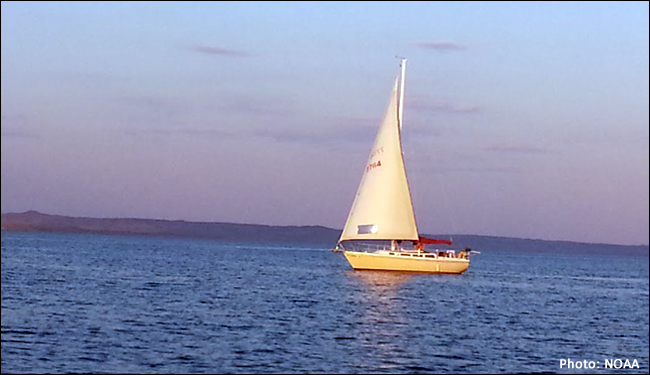- Before going boating, fishing, diving or enjoying other water sports, check the forecast from weather.gov or your favorite weather source..
- If severe weather is predicted, stay home or go earlier than normal. Be prepared to head to shore quickly. Monitor storms via:
- NOAA Weather Radio
- Weather.gov
- Apps that have radar/lightning data
- If you are caught out in a storm and can't get back in time, here's what do to:
- Divers should get out of the water and get to safety. If that is not possible, dive as deep as possible for the duration of the storm or as long as possible.
- Stop all activities when there is lightning or when weather conditions look threatening. The first lightning strike can come out of a clear blue sky many miles ahead of an approaching thunderstorm cloud.
- If your boat has a cabin, stay in the center of the cabin. If you don't have a completely enclosed cabin, stay low.
- Keep arms and legs in the boat. Do not dangle them in the water. Water conducts electricity from lightning.
- Disconnect electronic equipment, including the radio, throughout the duration of the storm.
- Lower, remove or tie down the radio antenna and other protruding devices if they are NOT part of a lightning protection system.
- If someone is struck by lightning, perform CPR immediately if needed. Victims do not carry an electrical charge after being struck. There is no danger to you in offering emergency aide..
- If a boat has been struck by lightning, or is suspected of having been struck, check the electrical system and the compasses to ensure that no damage has occurred.
Consider bookmarking the mobile-friendly NWS weather.gov website or download a weather app. Be sure your app offers forecasts and NWS watches, warnings and advisories. Some more advanced apps, offer radar data and lightning information, which can be vital for boaters caught out when the weather changes.
